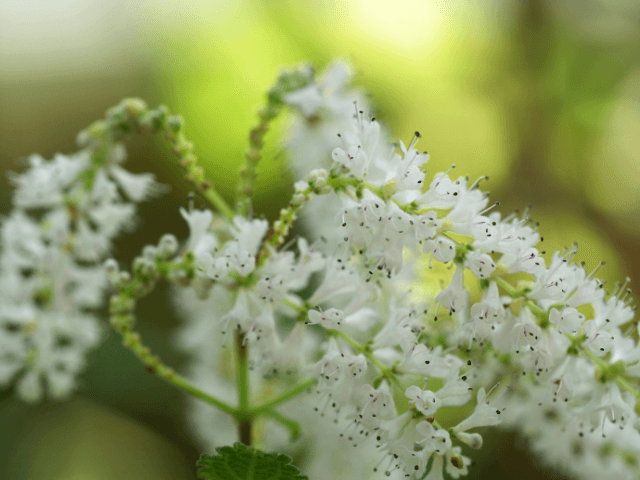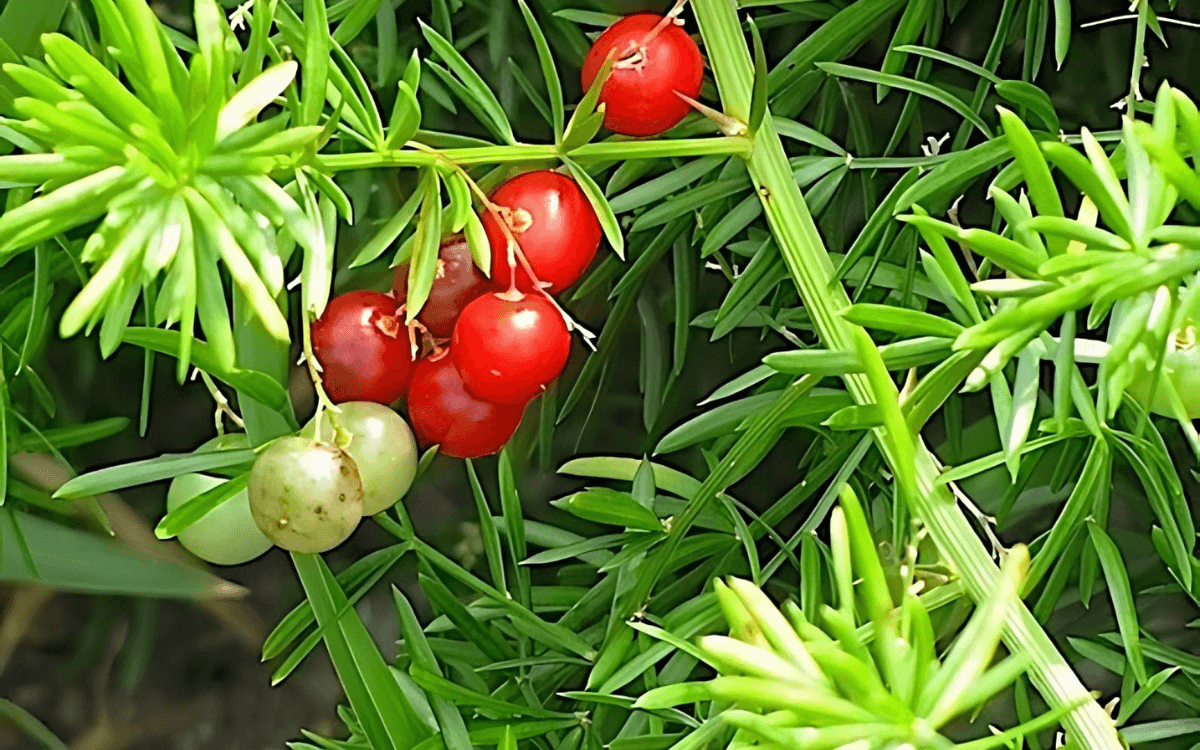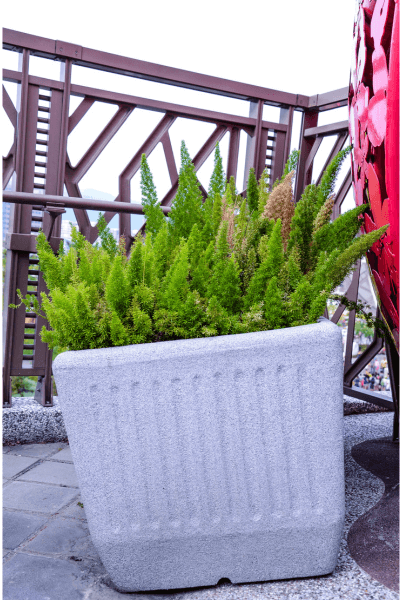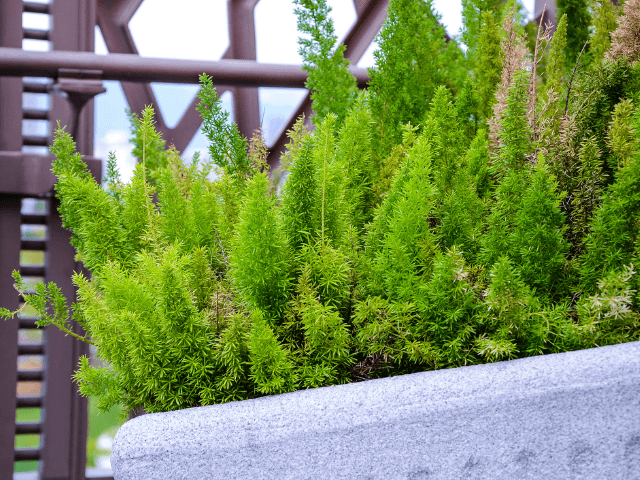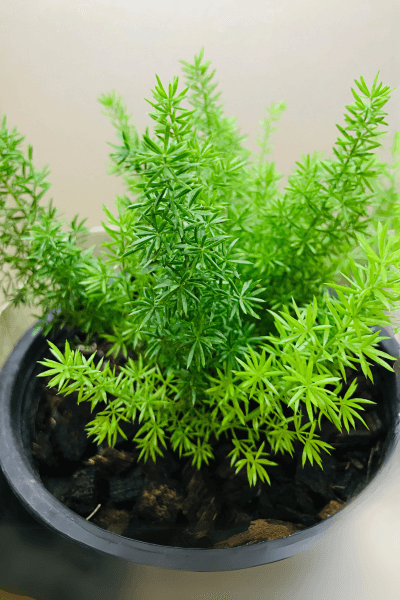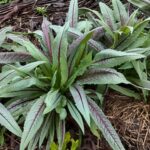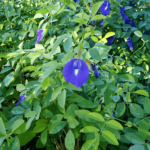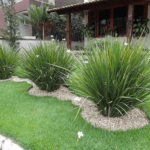The Asparagus densiflorus is a perennial plant that is found natively in South Africa.
In this article, you will learn the necessary care to keep this plant healthy, as well as discover its characteristics and curiosities.
Plant Characteristics
The Asparagus densiflorus has a creeping and hanging growth, so it is ideal for hanging planters, where its eye-catching leaves can be more appreciated (see the image below).
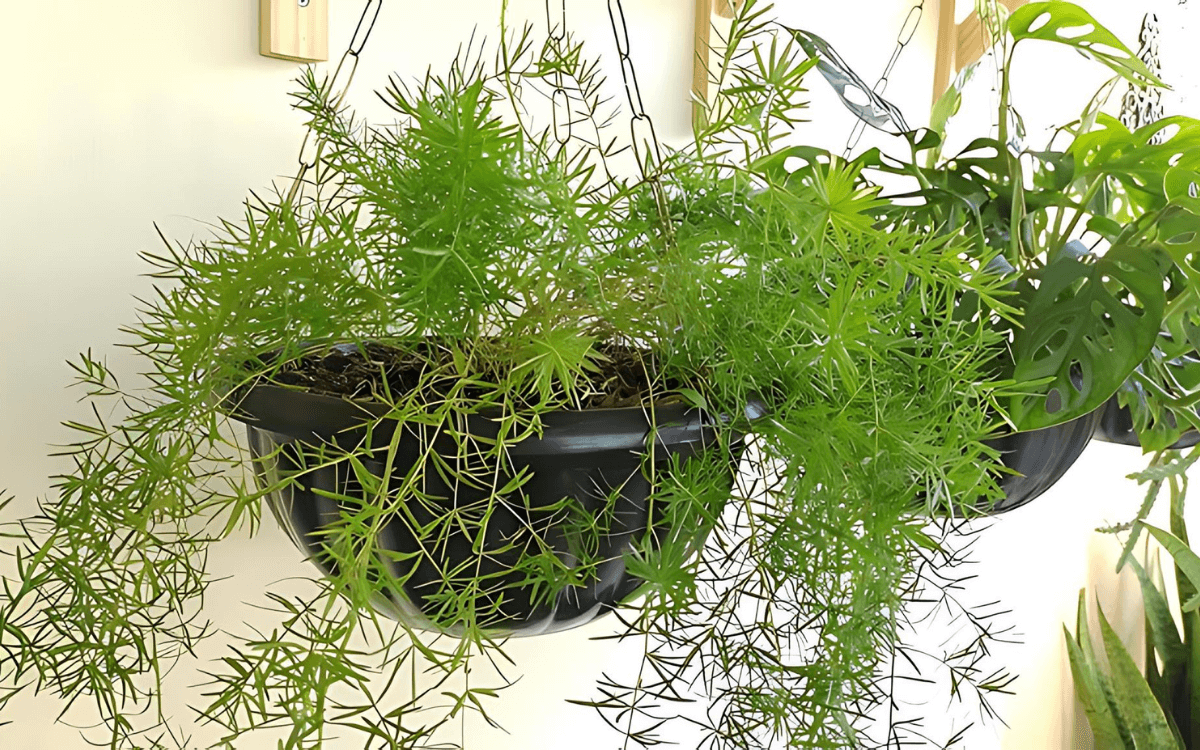
Almost all year round, this plant has white flowers that evolve into small round red fruits. These fruits add a visual contrast against the green of the foliage and also attract various bird species.
Where to Place
This asparagus can be grown both indoors and outdoors, as long as its growing conditions are met.
This plant can be a great choice for:
- Gardens
- Courtyard
- Balconies
- Among others
See below the necessary care to keep your Asparagus densiflorus healthy.
Ideal Climate
The ideal temperature range for the Asparagus Densiflorus Sprengeri varies between 10°C (50°F) and 30°C (86°F), allowing it to adapt both in tropical and subtropical climates.
In regions with harsh winters (frosts and extreme cold), protect the roots and tubers of the plant to ensure that it sprouts again in spring.
This asparagus needs to receive a good amount of direct sunlight for its growth and development to be healthy, just seek to protect it from the sun during the hottest times of the day.
Regarding humidity, this plant has a good tolerance to drought but develops better in environments with high humidity.
As its natural habitat are coastal and humid regions, maintaining good humidity, but without exaggeration, will help in the health of this asparagus.
Ideal Soil
The Asparagus Densiflorus Sprengeri needs a well-drained and fertile soil, which can be achieved through a balanced mix of substrate, humus, and sand.
This composition ensures a texture that allows the effective drainage of water, while retaining the necessary moisture for the development of the plant.
ADVANCED TIP: The ideal pH range for this plant is between 6.0 and 7.0. Additionally, the soil hardness (measured in dH) should be kept below 20 dH, ensuring conducive conditions for the healthy growth of the Asparagus densiflorus.
Watering
The Asparagus densiflorus needs regular watering to keep the soil consistently moist, however, it’s crucial to avoid waterlogging.
Excess water can lead to serious problems, such as root rot and mold formation, conditions that compromise the health of the plant.
During the period of active growth, which occurs mainly in spring and early summer, the plant demands a greater amount of water. However, in winter or during periods of dormancy, watering should be moderated to reduce the risk of excess moisture in the soil.
Fertilization
The use of slow-release organic fertilizers is ideal, you can apply them on the soil surface at the end of winter. Two great options of organic fertilizers for this plant are manure or composting.
These fertilizers help in the growth of your Asparagus densiflorus, without the risk of over-fertilizing.
In the videos below you can see other organic fertilizer recommendations.
Another option that will help in the development of your plant are chemical fertilizers, they should be applied during the warmer months, spring and summer.
Fertilizers of the NPK 10-10-10 type, applied with half the doses recommended by the manufacturer, will provide the necessary nutrients for the growth of your plant.
Additional Tips
Below are some additional tips not mentioned above:
- The propagation of this plant can be easily done by division of clumps or by seeding, using the seeds collected from ripe fruits. These methods allow effective propagation and expansion of the garden in a sustainable way.
- This asparagus is very resistant to serious problems with pests or diseases, which makes this plant a great option for beginner gardeners.
- The prunings should be performed on dry parts, in addition to maintaining the desired shape and encouraging healthy growth. When pruning your Asparagus densiflorus, remember to use sterilized scissors.
In addition to this asparagus, here on the blog we have various texts on cultivating beautiful and striking plants for your garden, below I’ve left some recommendations that may interest you.
- Tillandsia Air Plants: Species and Care (With Photos)
- Ribbon Fern or Cretan Brake Fern: How to Plant and Care
- Japanese Fern Tree – How to Care and Characteristics
- Leatherleaf fern – Care, Characteristics and Curiosities
- Monarch Fern – How to Care and Propagate
- How to Care for Ferns in 9 Steps (For Beginners)
Got any questions? Leave your comment below.

